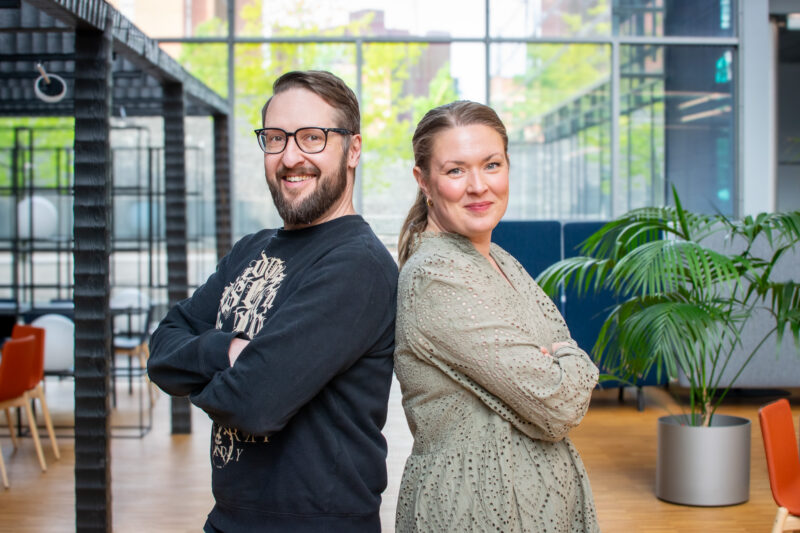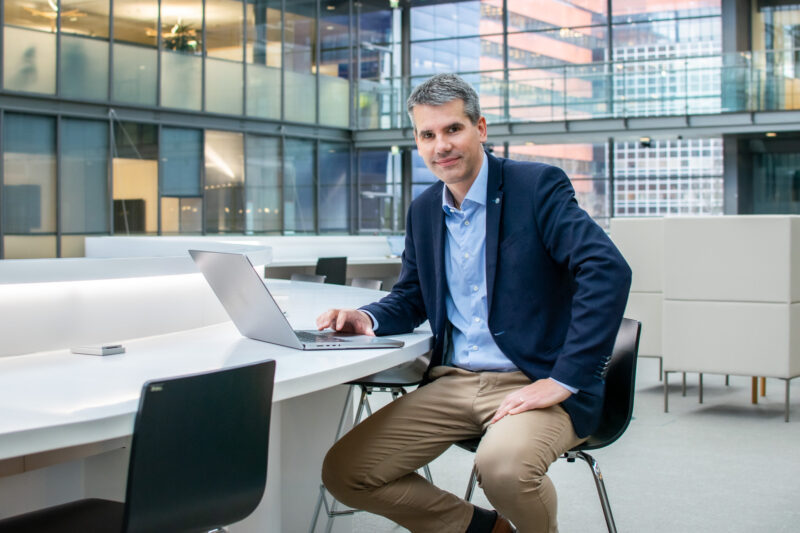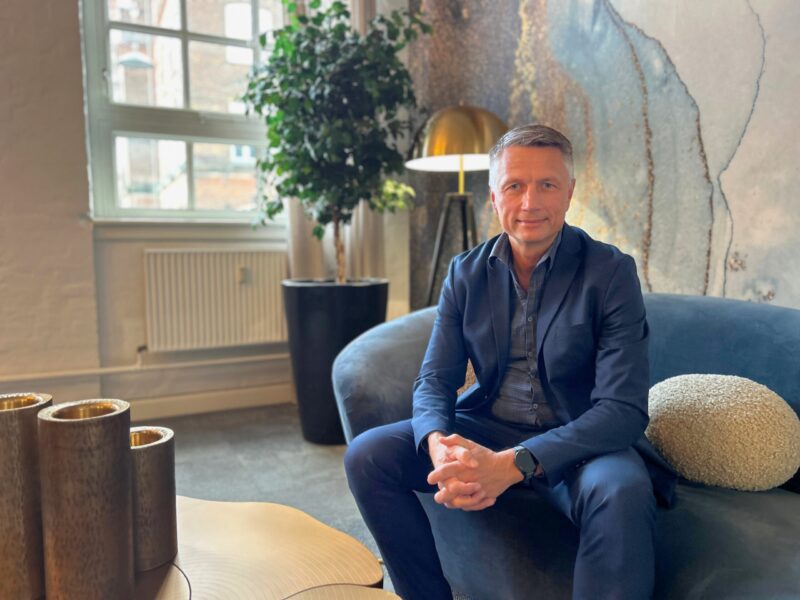AI made the flowerbed flourish – next, it will do the same for creativity
AI agents are coming to workplaces, transforming the nature of knowledge work and freeing up human creativity. Hanna Häyhä and Kusti Kaukoniemi say they are living examples of this.
There are many myths and misconceptions surrounding the arrival of AI agents in the workplace. One common fear is that AI agents will limit human creativity and alienate people from one another.
Hanna Häyhä and Kusti Kaukoniemi strongly disagree. Both believe that these new AI colleagues will actually empower people to express themselves more effectively – and in doing so, enable more open and meaningful human interaction at work.
Hanna and Kusti come from completely different professional and educational backgrounds and seemingly have little in common. What unites them, however, is a shared passion for how organisations and their ways of working must evolve as AI agents become coworkers for knowledge professionals.

“The central driver of this change isn’t technology – it’s people,” they both emphasize.
From public administration scholar and classroom teacher to AI expert
Hanna holds a degree in public administration, but her career has largely revolved around various technology projects, where she has grown into a professional in change management. Kusti, on the other hand, trained as a classroom teacher but has long worked in vocational education, particularly as a specialist in digital learning.
Today, Hanna works in AI Agent Business Program, which develops AI Agent First services — where AI acts as an independent expert, supported by humans.
Kusti, who also works on the same initiative, is employed by Business Technology Forum. The For is responsible for the open Business Technology Standard, which plays a central role in how AI agents are trained for various business technology expert roles.
In her work, Hanna paves the way for advanced use of AI, with a focus on enabling internal transformation within organisations.
“My work is successful when people find the change meaningful and feel they have the capabilities to embrace it. I believe that’s when their creativity is also set free,” Hanna says.
Working on AI-related training solutions, Kusti is just as passionate about creativity. He emphasises that basic AI skills are a core requirement for the future of work – and that people working alongside AI colleagues must also understand the ethical and cybersecurity aspects of AI.
A flowerbed and a band outfit – a good place to start
Our staff are not trained just for the company itself, but first and foremost to meet the needs of our clients. Only by preparing for the future can we also help our clients make the leap in productivity that AI enables.
“Our job is to stay at least one or two steps ahead of the general development, so we can help our clients succeed,” Kusti sums up.
Hanna and Kusti both emphasise that AI skills and creative thinking are useful not only at work but also in everyday life. They say they regularly find small – and sometimes not-so-small – tasks that can either be fully outsourced to AI or made easier and faster with AI’s expert assistance.
For example, Hanna recently got great advice from AI on how to revive a wilted flowerbed. Kusti, meanwhile, had AI design new stage outfits for his metal band, Killing Eliza.
Of course, there’s a long way from flowerbeds and band outfits to a productivity leap and a new way of working alongside AI colleagues. But the most important thing is to start the journey boldly – and to remember that it begins with people.
Want to learn more?
We’re glad to tell you how we can help your organisation grow and develop – feel free to contact us!


